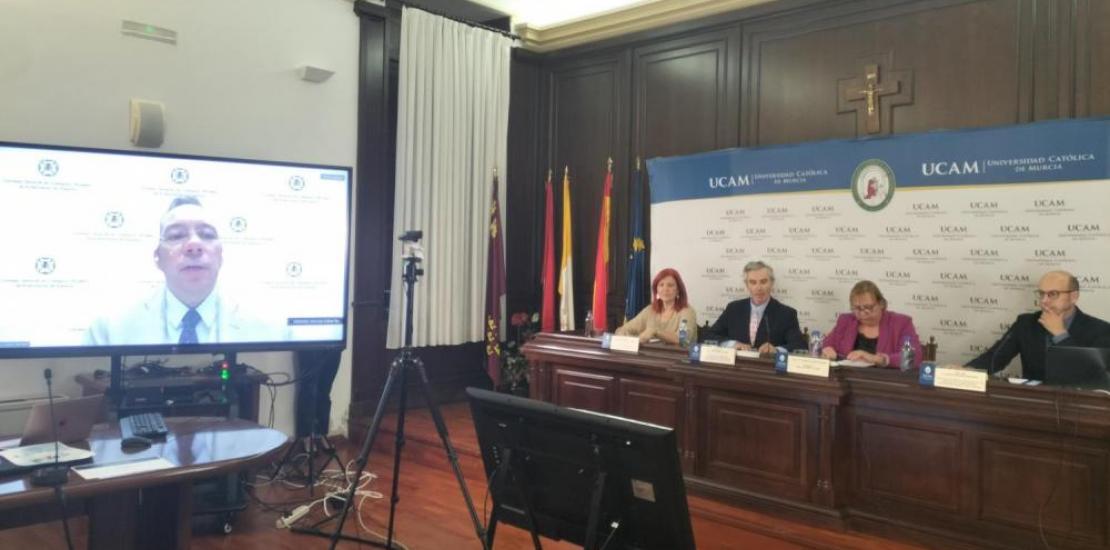Experts from all over the world gather at UCAM to demand school nurses
UCAM is holding the 2nd International Symposium on Nursing and School Health, organised together with the International Association of School Nurses & Health Promotion (ISNA) and the Spanish Scientific Association of Nursing and School Health, in which professionals from more than 30 countries have participated for two days.
What are the competencies a nurse should have in Spanish educational centres? This is the question that the institutions linked to this field have been trying to answer and one of the topics discussed at the 2nd International Symposium on Nursing and School Health that UCAM, together with the International Association of School Nurses & Health Promotion (ISNA) and the Spanish Scientific Association of Nursing and School Health have held these days, aiming to learn about the figure of this health professional in other parts of the world, thus seeking to unify criteria through success stories. School nursing has been effectively implemented in several countries since late 19th century and throughout the 20th century, including the USA, Japan (with regulated training from the university level), the United Kingdom, France, Sweden and Australia, all of which were represented at the Symposium.
The inauguration ceremony was presided over by Gràcia Soler, President of ISNA; Paloma Echevarría, Dean of the UCAM Faculty of Nursing; Amelia Corominas, President of the Professional Association of Nurses of the Region of Murcia; Daniel Guillén, Director of the UCAM Master's Degree in School Nursing and Health and Executive President of the Spanish Scientific Association in this area; José Luis Cobos, Vice-President III of the General Council of Nursing and Pablo Blesa, Vice-Rector of International Relations
A nurse in every educational centre
The event highlighted the important role of the school nurse in educational centres, both in providing care to children on an ad hoc basis or with chronic conditions, in the prevention of health problems through the learning of good habits and in early intervention in school bullying and the different situations of drug addiction and addiction prevention.
On an international level, progress has been made in recent years with the implementation of school nurses, whereas ‘in Spain, the situation is diverse, as we have different autonomous communities, and the situation is growing at a different rate in each one of them’, said Gràcia Soler. She also pointed out the need to keep moving forward, ‘to ensure that they are implemented in all schools in a uniform way and with an equitable and equal way of working, so that we can make progress in the care of children and adolescents.’ The President of the Regional Professional Association of Nurses also endorsed this demand, highlighting that the Region has made great progress in the last seven years, when the figure of this professional was promoted, and that today there are around 110 school nurses, distributed by health areas: ‘This model has been a good start, but it has to progress in order to have one nurse per school in primary and secondary schools.’
Daniel Guillén, Director of the UCAM Master's Degree in School Nursing and Health, added that it is the parents themselves ‘who are demanding the school nurse’, as they can see, together with teachers and the medical professionals, that this specialist is a key element, so that ‘if it is reinforced, it will generate better care and a culture of health’.




